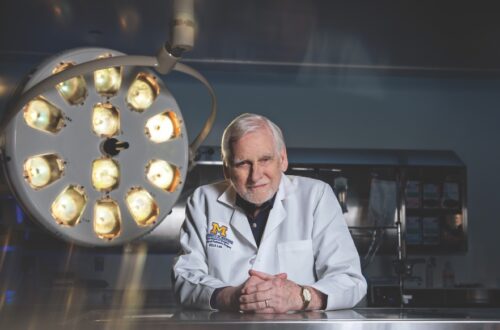MINNEAPOLIS, MN — The football world is remembering one of its most enduring figures, Jim Marshall, who passed away at the age of 87. A cornerstone of the Minnesota Vikings defense and a celebrated alumnus of Ohio State University, He was 87.
Marshall’s football journey began at Columbus East High School in Ohio, where his early athleticism earned him a place at Ohio State University under legendary coach Woody Hayes. There, he was a dominant presence on the defensive line, contributing to the 1957 National Championship team and earning recognition as a two-time All-American. His success at Ohio State foreshadowed a professional career that would become historic in scope and spirit.
Marshall entered the NFL with the Cleveland Browns in 1960, but it was his 19-year tenure with the Minnesota Vikings, beginning in 1961, that defined his professional legacy. As a defensive end, Marshall became an original and irreplaceable part of the Vikings’ identity — literally and symbolically — joining the team in its inaugural season and remaining a key figure until his retirement in 1979.
He formed one-quarter of the formidable defensive line known as the “Purple People Eaters”, alongside Alan Page, Carl Eller, and Gary Larsen. This fearsome quartet became the heart of a Vikings defense that appeared in four Super Bowls and was considered among the most dominant of its era. In a remarkable feat of athleticism and resilience, all four linemen were named to the Pro Bowl in the same season — a testament to their synchronized excellence and individual brilliance.
But it was Marshall’s durability and leadership that set him apart in league history. He started 282 consecutive regular-season games — 12 with Cleveland and an incredible 270 with Minnesota — the longest such streak for a defensive player in NFL history. Including playoff appearances, Marshall played in 301 consecutive games, a record that stood for decades and ranks third all-time behind only Jeff Feagles and Brett Favre.
Favre, notably, surpassed Marshall’s record while playing for the Vikings, a poetic link between two of the NFL’s most iron-willed athletes.
Though official sack records weren’t kept until after Marshall’s prime, football historians estimate he recorded at least 130.5 sacks, a number that would place him 22nd on the NFL’s all-time list. He also remains tied for the NFL record for fumble recoveries, with 29 — yet another example of his relentless impact on the field.
Marshall’s contributions went far beyond statistics. Former Vikings head coach Bud Grant, who led the team through some of its most successful years, consistently referred to Marshall as the spiritual center of his roster.
“Whatever I said, Jim was the first guy in line,” Grant once recalled. “If I said take a lap, everybody looked to Jim Marshall. If Jim went, they’d all follow. They were like a bunch of goats following Jim.”
Off the field, Marshall was equally respected — not only by teammates and coaches but by fans and members of the broader community. He was known as a gentleman of the game, frequently returning to Columbus for winter sports banquets and alumni events, never turning his back on the place where it all began.
Despite his many achievements, Marshall remains notably absent from the Pro Football Hall of Fame, a fact that continues to be regarded as a glaring oversight by fans, former players, and analysts alike. His exclusion has fueled ongoing conversations about how durability, leadership, and consistency should be honored alongside traditional metrics like sacks and championships.
For many, Marshall’s name is synonymous not only with excellence but also with endurance, character, and humility. He played the game the right way — without complaint, without shortcuts, and always with his team in mind.
His death marks the loss of a true icon of American football, a player whose career spanned two decades but whose influence will last much longer.
Jim Marshall is survived by a grateful community of teammates, friends, family, and fans who will remember him not just as a “Purple People Eater” or an NFL ironman, but as a leader, mentor, and symbol of what the game can be at its best.
Let me know if you’d like a version tailored for a team press release, alumni newsletter, or social media tribute.






